- Information Technology & Machine Learning
-
_20180321085421.jpg)
Real-time microwave imaging of moving anomaly from scattering matrix PROF. PARK, Won-kwang Kookmin University Won-Kwang Park received his B.S. degree in Mathematical Education from Kookmin University, Seoul, Korea in 2000, M.S. degree in Mathematics from Yonsei University, Seoul, Korea in 2004, and Ph. D. degree in Applied Mathematics from Ecole Polytechnique, Palaiseau, France in 2009. After graduation, he joined the institute for mathematics and scientific computing, University of Graz, Austria, as a post doctoral researcher in 2009. From 2010, he joined to the Kookmin University to work first as a full-time lecturer and as an assistant professor at the department of mathematics. Currently, he is an associate professor of Department of Information Security, Cryptology, and Mathematics in Kookmin University. His main research area includes Inverse scattering problem, inverse conductivity problem, microwave imaging, non-destructive evaluations, electromagnetics, scientific computing, and deep learning. In 2008, he received the best paper award from the Mechatronics & Mechanical Engineering symposium in EKC (EU-Korea Conference on Science and Technology) 2009 conference for his remarkable contributions to the level-set method in inverse scattering problem. He was awarded the best paper/poster award with his colleagues from 2013 KSIAM (Korean Society for Industrial and Applied Mathematics) spring conference, 2013 KSIAM annual meeting, 2015 KIEES (Korean Institute of Electromagnetic Engineering Science) summer conference, and 2016 KIEES summer conference. He has published various peer-reviewed articles about mathematical theories of various non-iterative algorithms for reconstructing crack-like defects in inverse problems, level-set method in inverse scattering problems, and microwave imaging techniques for detecting anomalies. 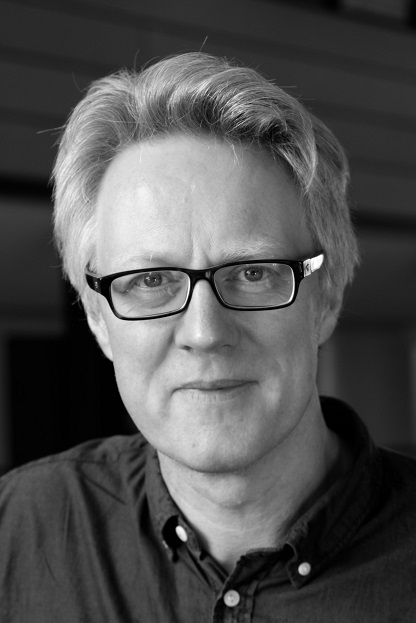
Network science from a mathematician's perspective PROF. HIGHAM, Desmond University of Strathclyde Des Higham is an applied mathematician with interests in computational biology, technological/sociological/security networks and mathematical finance. He is a Fellow of the Royal Society of Edinburgh, and a Fellow of the Society for Industrial and Applied Mathematics (SIAM). He has been awarded the SIAM Dahlquist Prize, an EPSRC Established Career Fellowship and a Royal Society Wolfson Research Merit Award. He is Editor-in-Chief of SIAM Review. 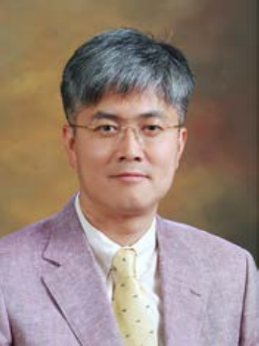
Introduction to Finance•Fishery•Manufacture industrial mathematics center on big data (FFMIMC) PROF. KIM, Hyun-min Pusan National University Education and Degrees Ph.D. (1997.09 - 2000.12) Department of Mathematics, University of Manchester, U.K. M.Sc. (1996.04 - 1997.09) Department of Mathematics, University of Manchester, U.K. B.Sc. (1985.03 - 1992.02) Department of Mathematics, Pusan National University, Korea Professional Experiences Direct of Finance Fishery Manufacture Industrial Mathematics Center on Big Data (2017. 06 – present) Dean of Admissions Office, Pusan National University (2016. 02 – 2017. 08) 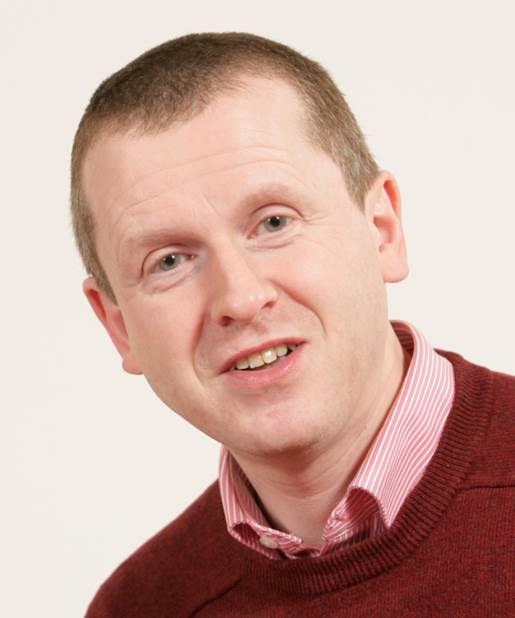
Sonopill: the future of capsule ultrasound PROF. COCHRAN, Sandy University of Glasgow Prof. Cochran’s research focuses on materials and systems to apply ultrasound principally in medicine and life sciences. His lab is the only one in the UK dedicated to medical ultrasound materials and systems, and one of only a handful like it in the world. Topics of particular interest are: (i) New piezoelectric materials and better utilisation of existing materials. (ii) Miniature devices for clinical applications of high resolution ultrasound imaging. (iii) Focused ultrasound surgery and ultrasound-targeted drug delivery. (iv) Ultrasound for transmission beamforming and manipulation of cells and particles. (v) Miniature and microscale ultrasound systems for biomedical applications. (vi) Ultrasound and other techniques for sensing in the body. Prof. Cochran has led more than 20 research projects with a value of more than £12m and been a co-investigator on around 20 more, worth a further £8m. He has been a director of two startup companies and is an inventor on 10 patents. He is a Fellow of the Institute of Physics and a member of several others learned societies. He has led the supervision of sixteen successful PhD / EngD students and jointly supervised five more. He is presently lead or joint supervisor for eight PhD / EngD students. 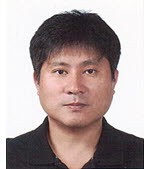
Deep learning and mathematical approach for defect inspection PROF. KANG, Myungjoo Seoul National University Myungjoo Kang received the B.S. degree in mathematics from Seoul National University, Seoul, Korea [1986] and the Ph.D. degree in mathematics from the University of California at Los Angeles, Los Angeles, in 1996. He was with the Department of Electrical and Computer Engineering, UCSD, and the Department of Mathematics, UCLA as a Researcher from 1996 to 2002. Since 2003 , he has been a faculty member of the Department of Mathematical Sciences, Seoul National University, Korea. His research interests are in mathematical image processing, as well as deep learning, numerical schemes and computational fluid dynamics. 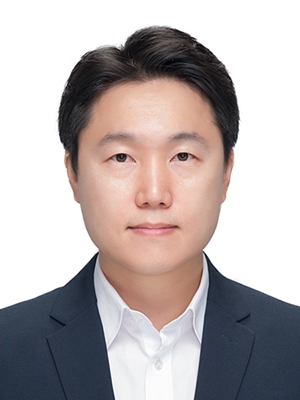
Single-photon detectors for next-generation biomedical applications DR. LEE, Myung-jae École Polytechnique Fédérale de Lausanne (EPFL) Myung-Jae Lee received his Ph.D. degree in electrical and electronic engineering from Yonsei University/South Korea, in 2013, and then joined TU Delft/The Netherlands as a postdoctoral researcher. Since 2017, he has worked in EPFL/Switzerland, where he is a scientist working on advanced single-photon detectors and applications as well as coordinating and managing research projects. He has published over 60 papers in international journals and conferences, and he has 2 patents and 10 awards. 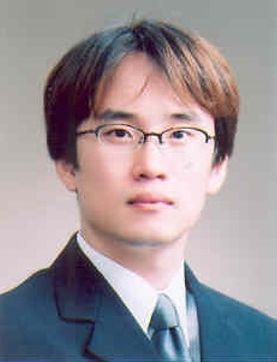
Introduction to KISTI-5 supercomputer and its HPC applications in computational science and engineering DR. KANG, Ji hoon Korea Institute of Science and Technology Information (KISTI) Dr. Ji-Hoon Kang is a principal researcher in Korea Institute of Science and Technology (KISTI). Since joining KISTI in 2009, he has worked in the field of scientific computing and HPC applications. As a head of the department of supercomputing application from 2016 to 2017, he led the benchmark tests for the procurement of KISTI-5 supercomputer. He received B.S. (2000), M.S.(2002), and Ph.D.(2007) from Korea Advanced Institute of Science and Technology (KAIST) in mechanical engineering. 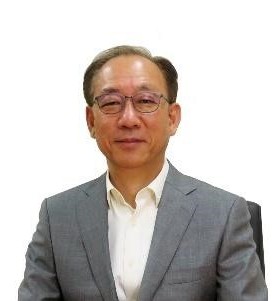
A strategy of software R&D for the fourth industrial revolution MR. KIM, Myung-joon SPRi (Software Policy $ Research Institute) KIM Myung-Joon received the B.S. degree from Seoul National University, the M.S. degree from KAIST(Korea Advanced Institute of Science and Technology) in Korea and the Ph.D. degree from University of Nancy I France in 1978, 1980 and 1986 respectively, all in computer science. He worked in LORIA (www.loria.fr) France as a Ph.D. student researcher during 1981 and 1986. He joined ETRI (www.etri.re.kr) in 1986 and has worked for the development of computer system software technologies. He served Senior Vice President of Computer & Software Research Laboratory (2000-2001), VP of R&D Strategy and Planning Division(2008), Senior VP of Software & Contents Laboratory(2009) and VP of Creative and Challenging Research Division(2010-2011), and Research Fellow(2012-2013). During July 2014 ~ September 2016, as research fellow he worked for ETRI startup TestMidas Co. Ltd. This company has been merged by Suresoft Technologies Inc. (www.suresofttech.com) at the beginning of 2016. He has leaded a number of Korean national projects, especially one for Linux technology development (code: BOOYO, 2004 ~ 2008). He played an important roles to promote FOSS (Free and Open Source Software) in Korea and also in the North-East Asia, as a vice chairman of Korea OSS Promotion Forum(2003~2009) and as a Korean vice chairman of the North-East Asia OSS Promotion Forum(2004~2010). He served the president of KIISE (Korea Institute of Information Scientists and Engineers, (www.kiise.or.kr) in 2012. He served two years (2013-2014) in Linux Foundation (www.linuxfoundation.org ) as a board member. His research achievement (2000 ~ 2015) could be summarized as follows: technology transfers 183 cases, licensing fee 265M Won (his contribution part), international journal papers 8(SCI 7, SCIE 1), national journal papers 25, patents registration 66 (international 35, national 31). 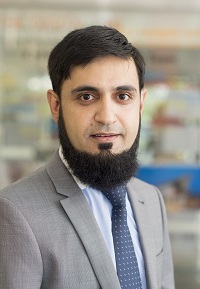
Digital solutions for manufacturing industry DR. AHMAD, Bilal University of Warwick Dr Bilal Ahmad is working as a Senior Research Fellow at WMG, University of Warwick. He received his MSc in Mechatronics and PhD in Automation Systems from Loughborough University, UK. He has over 13 years of experience in applied industrial research in the manufacturing sector. His specialisation areas include digital modelling, validation and deployment of cyber-physical systems, smart manufacturing, IT/OT integration, edge analytics and Internet of Things. He led development of a number of digital engineering tools and methods to support lifecycle engineering of automation systems in collaboration with automotive manufacturers, machine builders and control vendors. These include tools for offline validation of productivity and quality data of manufacturing systems, virtual commissioning / offline programming of manufacturing systems, and automatic code generation for PLCs and HMIs. Dr Ahmad has worked on a number of EPSRC, Innovate UK, FP7 and ARTEMIS funded research projects. He is actively contributing to IEEE technical and standardisation committees on Industrial Agents and Cyber Physical Systems, and is on the technical committees of a number of IEEE international conferences. He is also a reviewer for a large number of international journals and conferences. Prior to joining University of Warwick, he has worked as a Research Associate and University Teacher at Loughborough University, UK. 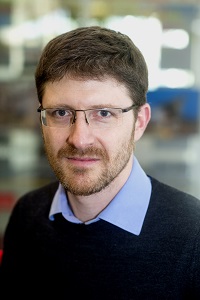
Digital evolution in manufacturing systems for Industry 4.0 DR. VERA, Daniel University of Warwick Daniel Vera received a M.Sc. degree in mechanical and Manufacturing engineering from E.N.I. Tarbes, France, in 2000 and a Ph.D. in manufacturing engineering from Loughborough University, U.K. in 2004. D. Vera has been developing methods and software solutions to support digital engineering for over ten years as a Research Associate at Loughborough University, U.K. and now as a Senior Research Fellow at the University of Warwick. His research interests are primarily focused on the design and development of data-driven collaborative engineering solutions to support key phases of manufacturing systems’ lifecycle, which formed the focus of his Ph.D. dissertation. Throughout his carrier he has developed expert-level knowledge regarding tools and solutions deployed in manufacturing, from computational models and simulation (DES, agent based modelling), the development of virtual systems’ engineering and simulation solutions (virtual process planning and validation), data analytics and machine learning (supervised/unsupervised learning, Deep learning and CNN), information visualisation (AR/VR interface development), cloud infrastructures deployment (Service oriented Architecture, Platforms as a Service). D. Vera has been involved both at technical and management level in numerous U.K. and European funded projects focusing on Digital Industry and Industry 4.0 oriented solutions. He is currently occupying a leading role in the Automation Systems Group at WMG, university of Warwick and focuses his research on the integration of IT-level and industrial control technologies into next generation Cyber Physical system engineering solutions. D. Vera is actively contributing to the Future Digital Need (FDN) and Digital Manufacturing strategy groups at WMG, is Leading Digital Acquisition and Analytics (DAA) CATAPULT forum+ projects and is actively involved in supporting national strategies for Digital Industry (D4I, IDR) through his involvement in HVMC funded Digital Manufacturing Large Scale Projects (LSP).